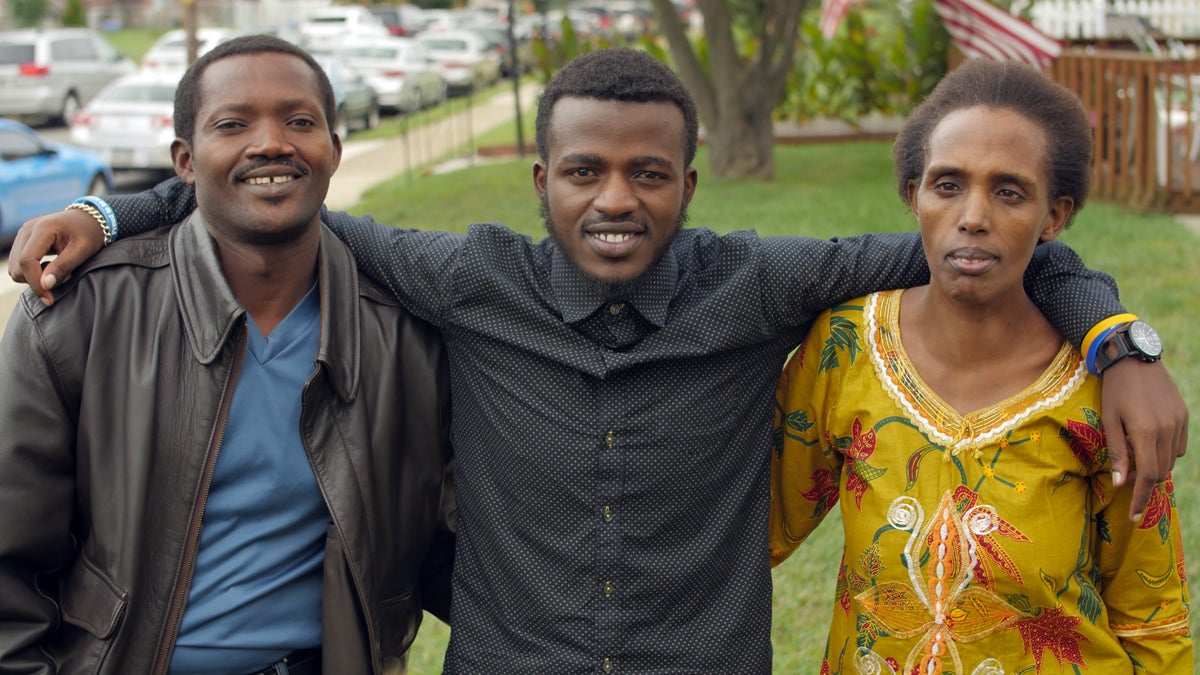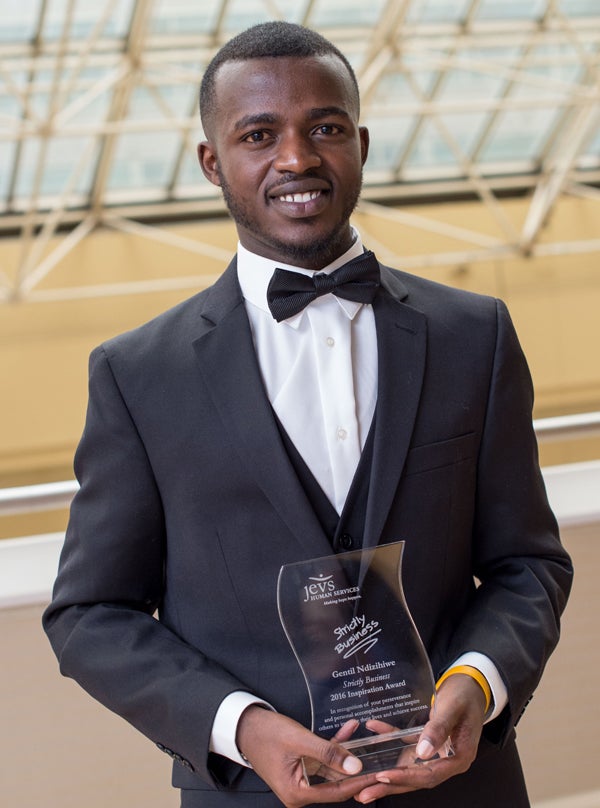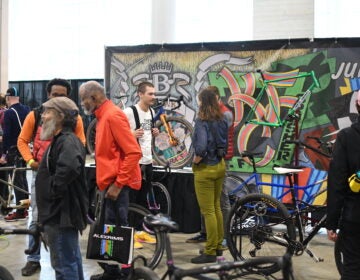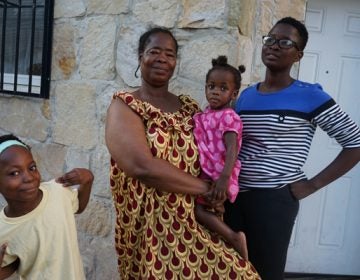For a refugee, making it work in America means not being afraid to ask for help

Gentil Ndizihiwe is shown with his parents. (Image courtesy of JEVS Human Services)
I don’t find myself very special. I know there are thousands of people like me who work hard to survive, to make money to support their families and to better themselves. I hope my story brings readers a little nudge or motivation.
When I was just a few months old, my parents fled the violence of Congo, taking me, their first-born son, to a Rwandan refugee camp. In this camp — a place lacking everything from electricity to job opportunities for even the most highly educated and skilled people — I received my first taste of education, the importance of friendship, and the responsibility an eldest son has to his family. By the time I was 18, I had almost completed my high school education, and I anxiously awaited the end of a two-year process that would allow my family and me to come to the United States.
A little over two years after arriving here, I am now 21 years old. I’ve had the opportunity to interact with other immigrants, as well as with students and teachers who have lived here their entire lives. And I’ve had the experience of becoming a part of the American workforce.
All of this has helped me see myself and my experience through the eyes of others. What I’ve learned from them is that what I thought was just a “normal way of doing things” in America is not exactly so — that my outlook, attitude, and approach to making it work here in the U.S. is something others find unique and inspiring.
But please, let it be said that I don’t find myself very special. I know there are thousands of people like me who work hard to survive, to make money to support their families and to better themselves. I’ve been asked many questions about my experience in Africa and as a newcomer to America. I hope my story brings readers a little nudge or motivation.
Optimism and opportunity
First, people seem very surprised that I was not nervous the day our family left Rwanda, nor the day we landed in New York and traveled to Philadelphia. Yes, I was 18 years old, arriving in a country that was worlds apart from everything I’d ever known. Yes, I barely spoke the language, I had no job or income source lined up, and heavy on my shoulders was the responsibility I felt for my mother, my deaf father, and my three sisters and brother. I suppose I should have been nervous and scared. I may not have known exactly what lay ahead for me, but I felt excited, fortunate, and confident that I would make it work for myself and for my family.
June 18, 2014, is my special day, my birthday day in America, and I have to celebrate this every year. In a way, I was a little like a newborn entering the world. A baby is not nervous; everything is new and wonderful. In Rwanda, I had heard how great America was, of the opportunities and lifestyles. Everybody in Africa thinks America is a great nation and that it’s nearly impossible to get there. But, here I was, making it to an amazing place most people in my country only dream of.
Secondly, most Americans are a bit shocked when they ask me, “Gent, what’s your favorite thing about being in America?” I always answer them directly: My favorite thing is the jobs — that there are so many jobs.
Their response to this is usually, “Really? Most people your age would talk about the cars and nightlife, or the vast selection of entertainment, food, fashion, and technology, or being able to get almost anything you want when you want it. Are you sure jobs are your favorite thing?”
This is my honest answer. You see, in Africa, even the people who graduate from university don’t have jobs. But here, educated and uneducated people get jobs. This is a very good thing. If I were still in Rwanda at this point in my life, I would have my high school education and be sitting at home, most likely having little to do but watch movies. For many hardworking people, this may sound like a dream, but if I were still in Rwanda, I’d be praying with other people that we’d find a resolution to that nightmare.
Asking for help
This also helps explain why I was so excited to come to America. Since I was kid, I had thought about being a technician when I grew up. So, when I got to America and started hearing about engineering, I said to myself, I’ve gotta be an engineer. I got started on that path as soon as I possibly could.
Because my family and I arrived in America as refugees, we were connected with a government agency for support. I immediately started asking for help finding education and a job. This is how I found my way to the JEVS Human Services Center for New Americans. Through CNA I learned to speak, read, and write English proficiently; and I developed computer skills and other skills that prepared me to be a positive force in my own life and in society.
The CNA team recommended me for JEVS Project WOW (World of Work), where I excelling learning skills in carpentry, plumbing, electricity, and other areas of maintenance. I knew that if I did well, they would also help me with job placement. After just about four months, I earned my GED as well as my diploma in property maintenance and repair. In November, JEVS also honored me with one of its annual “Strictly Business” Inspiration Awards.

I’m grateful to be working — to support my family, further my career, and acclimate to American culture. I’m registering for community college this month, and I am formulating a plan to get started in engineering school. My path to becoming an engineer will be a long one requiring a lot of hard work and perseverance. I know I will make it there.
People often tell me I have a lot of courage, but this I do not see. I succeed because I am not afraid, embarrassed, or in any way hesitant to ask for help.
I knew that opportunities existed for me in America. I know they still exist for me, too. I knew that in addition to my own hard work, I would need support to open doors. And I know that this support continues to be available to me if I ask for it. Help is all around us — whether that help is for finding a job, picking out healthy things at the supermarket, providing good advice for your children, or whatever. So I will keep asking for help with every step I take in life.
Perhaps, that is the greatest lesson I have to offer from my experience: Ask for help, and look for ways to help others in return. Nobody can know the future. But for me I’m really sure it will be positive and that this lesson will take me far. I work hard to succeed not just because of the money, but because that is who I want to be.
WHYY is your source for fact-based, in-depth journalism and information. As a nonprofit organization, we rely on financial support from readers like you. Please give today.




